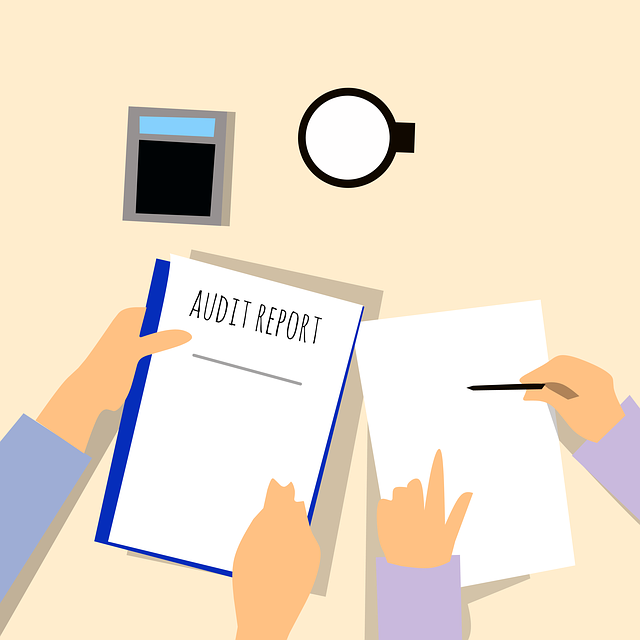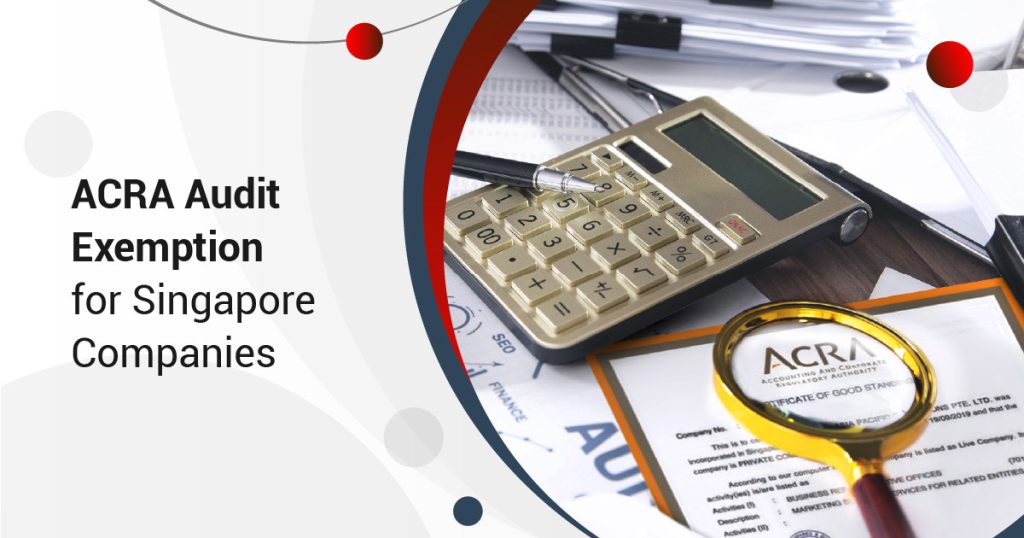The Accounting and Corporate Regulatory Authority (ACRA) is pivotal in its role as Singapore’s corporate regulatory body, managing audit standards and providing exemptions for Singaporean companies. In this article, we will delve into the ACRA audit requirements for private limited companies within Singapore, highlighting the importance of accounting services in Singapore to ensure compliance and accuracy.
For entrepreneurs, the private limited company stands out as the most advantageous business structure in Singapore, offering perks like limited liability, tax incentives, and straightforward compliance requirements. Moreover, the Companies Act in Singapore has introduced the “small company” concept, which frees qualifying private limited companies from the obligation of annual audits.
This is advantageous for businesses in Singapore as it helps to minimise compliance expenses and the overall burden of adhering to regulations.
The New Small Company Criteria for Audit Exemption in Singapore
 According to the regulatory framework established by the Singapore Companies Act, every incorporated company must undergo an annual audit of its financial statements and accounting records by a certified auditor.
According to the regulatory framework established by the Singapore Companies Act, every incorporated company must undergo an annual audit of its financial statements and accounting records by a certified auditor.
However, companies that fall under the audit exemption criteria are not obligated to conduct such audits. Nevertheless, these exempted companies are still required to prepare and submit their financial statements in adherence to the statutory compliance requirements.
This obligation highlights the critical need for maintaining precise and up-to-date financial records and statements, regardless of the size of the company or whether it is exempt from auditing requirements.
The Companies Act underwent significant revisions in 2014, introducing a new framework for audit exemptions specifically tailored for “small companies.” Under this revised legislation, qualifying small companies are no longer obligated to appoint auditors or conduct formal audits of their accounts.
Implemented on July 1, 2015, the criteria for a company to be designated as a small company are as follows:
- The company’s total annual revenue must not surpass S$10 million;
- The total assets held by the company at the end of the financial year must not exceed S$10 million;
- The company must have 50 or fewer full-time employees at the end of the financial year.
The audit exemption is not exclusive to private companies; it extends to group companies, including holding and subsidiary companies, provided they meet the small group criteria outlined above.
Group Company Audit Exemption Criteria

A group company is essentially a collective entity formed by a parent company and its subsidiaries, linked by a shared control structure.
Such a group company may be excused from the mandatory annual audit of its financial statements if each entity within the group, including the holding and subsidiary companies:
- Meets at least two criteria for audit exemption as a small company and
- Is part of a “small group”
For a group to be considered a “small group”, it must satisfy at least two of the following three thresholds during the last two consecutive fiscal years:
- The consolidated turnover should not be more than S$10 million;
- The consolidated total assets should not surpass S$10 million;
- The aggregate workforce for the entire group must be 50 employees or fewer.
In essence, for the group to be exempt from auditing, each subsidiary and the parent company must individually and collectively meet the small company exemption criteria.
Modification in Small Company Audit Requirements
A company that gains the “small company” designation is entitled to an exemption from audits. However, this exemption is forfeited under two specific circumstances:
- If the company stops being a private entity during the fiscal year, or
- If the company fails to meet the criteria for being a “small company” for two consecutive financial years.
Transitional Provisions
A company incorporated before the changes in the Act can also avail of the audit exemption if the company fulfils two out of the three qualifying criteria of a small company. Specifically, a company incorporated before July 1, 2015, can qualify as a small company if:
- It is a private company and
- Meets the qualifying criteria either in the first or second financial year after the commencement of the small company criteria (i.e. July 1, 2015)
The following table explains the transitional provisions:
| Qualifying Criteria in the Financial Year (FY) | Status as a Small Company |
|---|---|
| The Company satisfies the Qualifying Criteria in both FY 15 and FY 16 | The company qualifies as a Small Company |
| The Company satisfies the Qualifying Criteria in FY 15 but not in FY 16 | The company qualifies as a Small Company because it meets the criteria in the first year of the concept’s introduction |
| The Company does not satisfy the Qualifying Criteria in FY 15 but does in FY 16 | The company qualifies as a Small Company because it meets the criteria in the second year of the concept’s introduction |
| The Company does not satisfy the Qualifying Criteria in either FY 15 or FY 16 | The company does not qualify as a Small Company because it fails to meet the criteria in both the first and second years of the concept’s introduction |
The revision of audit exemption parameters has made regulatory compliance more straightforward for small enterprises. Now, a greater number of companies, including those that are subsidiaries of international corporations and meet the ‘small company’ criteria, will benefit from being exempt from audit requirements.
Singapore stands out as a premier destination for establishing a business presence. The nation is renowned for implementing some of the most entrepreneur-friendly policies globally, providing a fertile ground for businesses to take root and flourish. With its dynamic economy, Singapore offers a wealth of opportunities for those with innovative concepts and the ambition to build a thriving enterprise.
FAQs About ACRA Audit Exemption
Do companies exempt from audits still need to prepare and file annual financial statements?
- Certainly, all companies must continue to prepare financial statements and submit their unaudited annual financial statements.
These statements are crucial as they form the primary basis for the computation and preparation of your corporate tax returns. The financial statements that are prepared should be in accordance with the Singapore Financial Reporting Standards (SFRS) to maintain compliance with the local regulatory requirements. The key distinction for companies exempt from audit is that there is no necessity to engage an audit firm for the official auditing of the accounts.
Does my business qualify for an audit exemption as a small company? What services do you offer for bookkeeping and tax filing?
- Whether your company is exempt from audits or not, we provide a comprehensive range of bookkeeping and accounting services in Singapore.
For those instances when an audit becomes necessary, rest assured that we will coordinate seamlessly with your chosen audit firm to ensure a smooth and hassle-free audit completion.
What is the Process for a Company to Determine its Total Assets and Revenue?
- The calculation of a company's total revenue and assets is based on the accounting principles that govern financial reporting. The figures for total revenue and assets are reflected in the company's financial statements.
Is a company with corporate shareholders eligible for the small company audit exemption?
- The requirement for a company to be an exempt private company, which includes not having any corporate shareholders, is no longer a prerequisite for the audit exemption. Now, even a private company with corporate shareholders can qualify for the small company audit exemption, provided it meets the specified criteria.
Should a subsidiary still undergo an audit of its financial statements if it qualifies as a small company but is part of a group whose consolidated financial statements are audited by the holding company?
- To be considered for the small company audit exemption, the subsidiary must be part of a group that meets the small group criteria on a consolidated basis. This means that even if a subsidiary individually qualifies as a small company, it will not benefit from the audit exemption if the entire group does not meet the small group criteria and the holding company is obligated to audit the group's consolidated financial statements.
Is the audit exemption for small companies applicable to foreign entities as well?
- The privilege of the small company audit exemption is reserved for companies that are incorporated within Singapore. Nevertheless, when assessing if a group qualifies as a 'small group' for exemption purposes, all entities under the group's umbrella are considered, including those based overseas. This comprehensive approach ensures the group's consolidated financials—both revenue and assets—are appropriately evaluated against the exemption thresholds.



